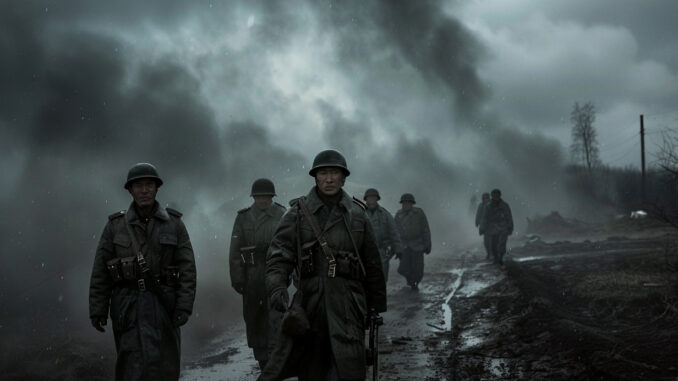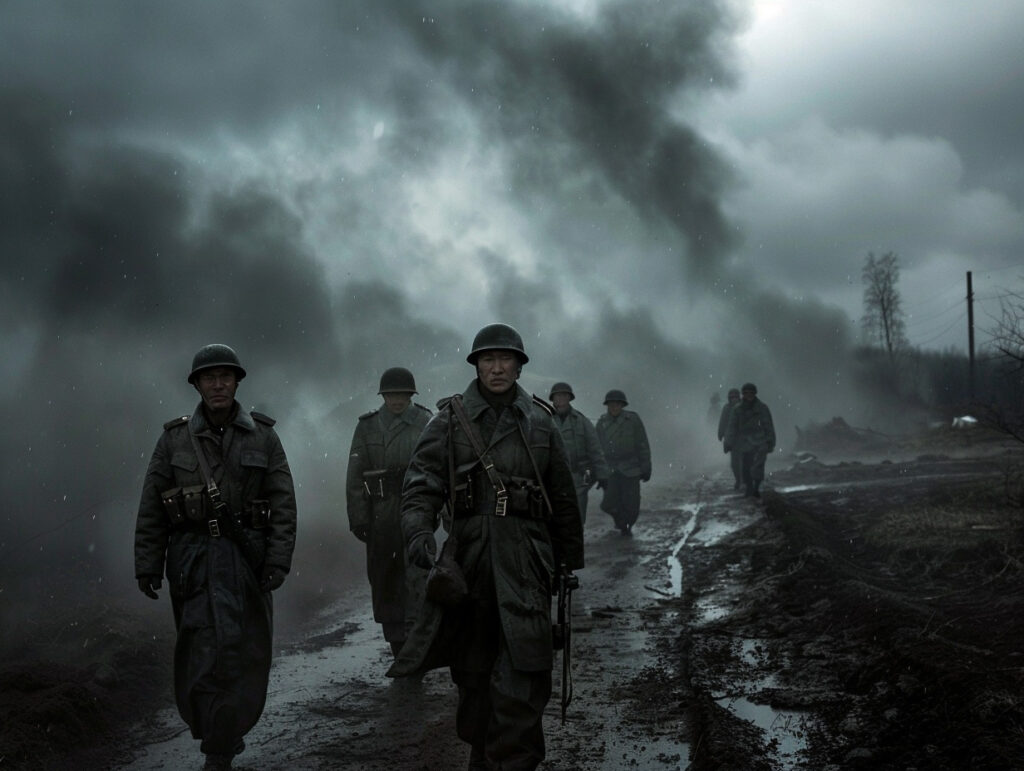
North Korea plans to send forces into Russian-occupied Ukraine, marking a turning point in their alliance. Analysis of the impact and strategic issues.
Ukraine could soon see the arrival of North Korean forces in the territories occupied by Russia. This dispatch of personnel by Pyongyang, as part of a mutual aid agreement recently signed with Moscow, raises strategic and humanitarian questions. This technical report explores the implications of this cooperation, analysing the potential effects on the conflict in Ukraine, international relations and military dynamics.
The nature of the Russia-North Korea agreement
North Korea and Russia recently signed a mutual aid pact that could see North Korean forces deployed in Russian-occupied Ukraine as early as next month. The agreement, revealed by Reuters, includes the dispatch of construction and engineering troops for reconstruction work in these territories. Although the exact number of personnel and the precise nature of their work are unclear, this cooperation marks a significant turning point in relations between the two countries.
Details of the agreement
The pact explicitly mentions sending forces for construction and engineering work, indicating a willingness to rebuild damaged infrastructure in occupied areas. This could include the construction of fortifications, the repair of roads and bridges, and the restoration of public buildings. The implications of this agreement go beyond simple reconstruction work, as it also strengthens the military and political ties between Moscow and Pyongyang.
Concrete examples
There is a historical precedent for this type of cooperation: during the Korean War, China sent a considerable number of “volunteers” to support North Korea. It is therefore conceivable that North Korea could send thousands of workers, or even troops, to carry out similar missions in Ukraine.
Consequences for Ukraine and Ukrainian forces
The presence of North Korean forces in Ukraine represents a new complication for Kiev. The Pentagon has warned that these troops will be used as “cannon fodder”. This statement underlines the high risk of casualties among the North Korean forces deployed.
Military impact
The deployment of North Korean personnel could strengthen Russia’s capabilities on the front line, particularly in fortification work and military logistics. However, these troops could also become easy targets for Ukrainian forces, exacerbating casualties in an already brutal conflict.
Numerical examples
In terms of casualties, Russian forces have already suffered significant losses since the invasion began in February 2022. The addition of North Korean troops could increase this figure, especially if they are ill-equipped or poorly trained for the conditions of the Ukrainian conflict.

International reactions
Sending North Korean troops to Ukraine could lead to severe reactions from the international community, including additional sanctions against Pyongyang and Moscow. It could also further isolate North Korea on the international stage.
Reactions from the United States and NATO
The United States and its NATO allies have already condemned the Russian invasion of Ukraine and could step up their support for Kiev in response to this new escalation. Additional economic sanctions against North Korea could also be considered.
Concrete examples
As a result of previous military collaboration between North Korea and other nations, international sanctions have often been imposed. For example, Pyongyang’s ballistic missile tests have led to UN resolutions and severe economic sanctions. A deployment in Ukraine could lead to similar measures.
Developing North Korea’s military capabilities
Collaboration with Russia could also enable North Korea to improve its military capabilities, particularly in terms of ballistic missiles and nuclear weapons.
Potential technological advances
Russia could provide North Korea with valuable technical expertise for the development of its missile and nuclear weapons programmes. This would strengthen Pyongyang’s position as a regional military power.
Numerical examples
North Korea already has an arsenal estimated at between 30 and 40 nuclear weapons. Increased cooperation with Russia could increase this number and improve the accuracy and range of its ballistic missiles, thereby increasing the threat to neighbouring countries and US forces in the region.
The dispatch of North Korean forces to Ukraine represents a major development in relations between Pyongyang and Moscow and raises a number of strategic questions. The implications for Ukraine, the international community and military dynamics in North-East Asia are considerable. This development deserves close attention, as it could be a game-changer in the conflict in Ukraine and beyond.
This cooperation could strengthen Russian positions in Ukraine while exacerbating international tensions, particularly between the United States, North Korea and their respective allies. The consequences of this agreement require in-depth analysis and ongoing monitoring to fully understand its long-term impact.
War Wings Daily is an independant magazine.